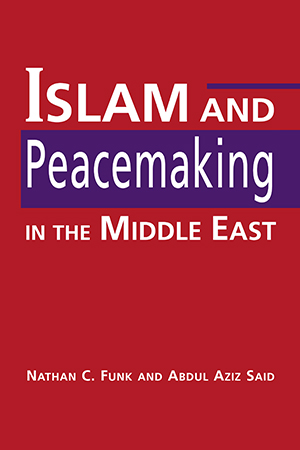Nathan C. Funk and Abdul Aziz Said
Islam and Peacemaking in the Middle East begins with a set of provocative questions: How, for example, do Muslims conceive of peace? To what degree do differences in the interpretation of Islam affect the ways in which peace is sought in the contemporary Middle East? Through analysis of regional trends and case studies, the authors explore various Islamic ideas of peace and their bearing on difficult ethnic, nationalist, and civic conflicts. The result widens the parameters for serious discussion of Islam's contributions—real and potential—to ongoing negotiations.
Nathan C. Funk is associate professor of peace and conflict studies at the University of Waterloo, Canada. Abdul Aziz Said is professor of international peace and conflict resolution and founder of the Center for Global Peace at American University.
No rights in South Asia."A well-researched and well-written book.... Both informed and informative."—Howard A. Patten, International Affairs
"[A] rigorous, but accessible, work.... Provide[s] a welcome detour from the platitude-laced discourse found in much scholarship and in the interfaith community."—Jill Carroll, Peace Review
"An excellent contribution.... Presents a broad, diverse, and complex picture that is informative and critical for understanding and establishing constructive relations with the communities of the Middle East."—S. Ayse Kadayifci-Orellana, Political Science Quarterly
"An important book, impressive in its scope, clarity, and balanced treatment of a highly complex and controversial subject. No other work compares to it."—Sohail Hashmi, Mount Holyoke College
"This pioneering book creatively synthesizes literatures as diverse as history, law, and philosophy. Funk and Said's insights will appeal broadly to academics, students, and peacemakers."—Sulayman S. Nyang, Howard University
"An important book for anyone who cares about the Middle East."—Susan Kennel Harrison, The Conrad Grebel Review






